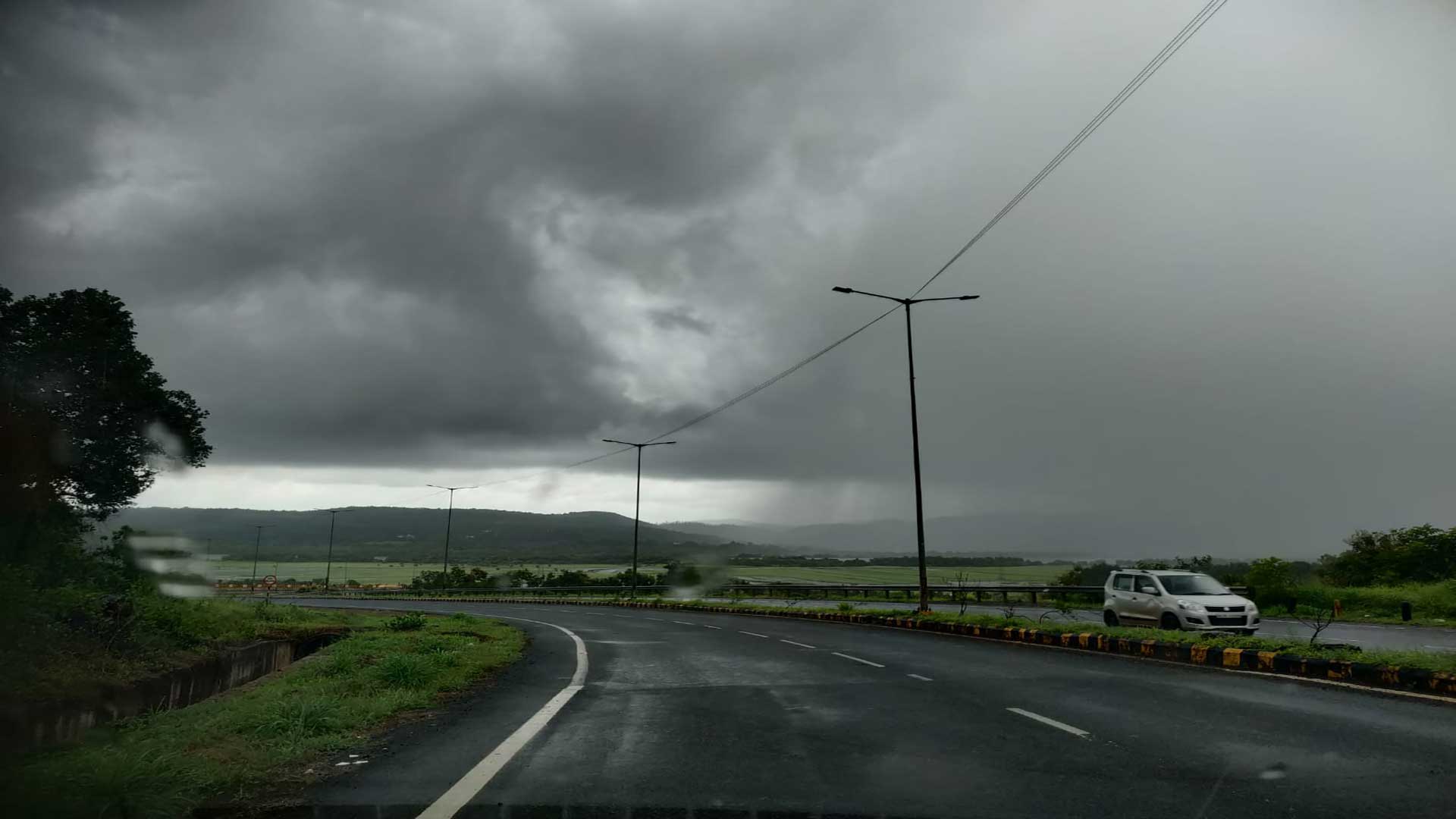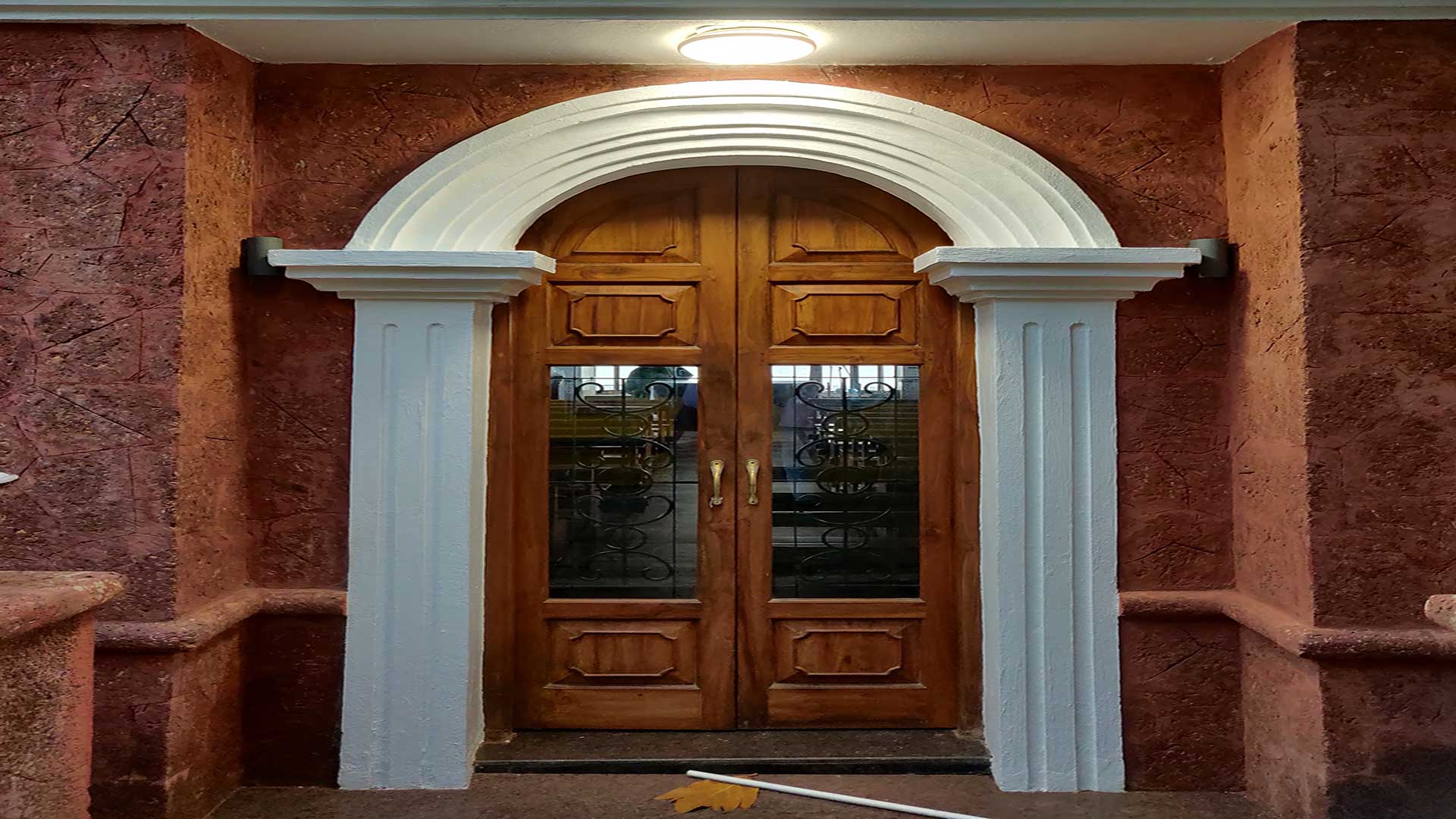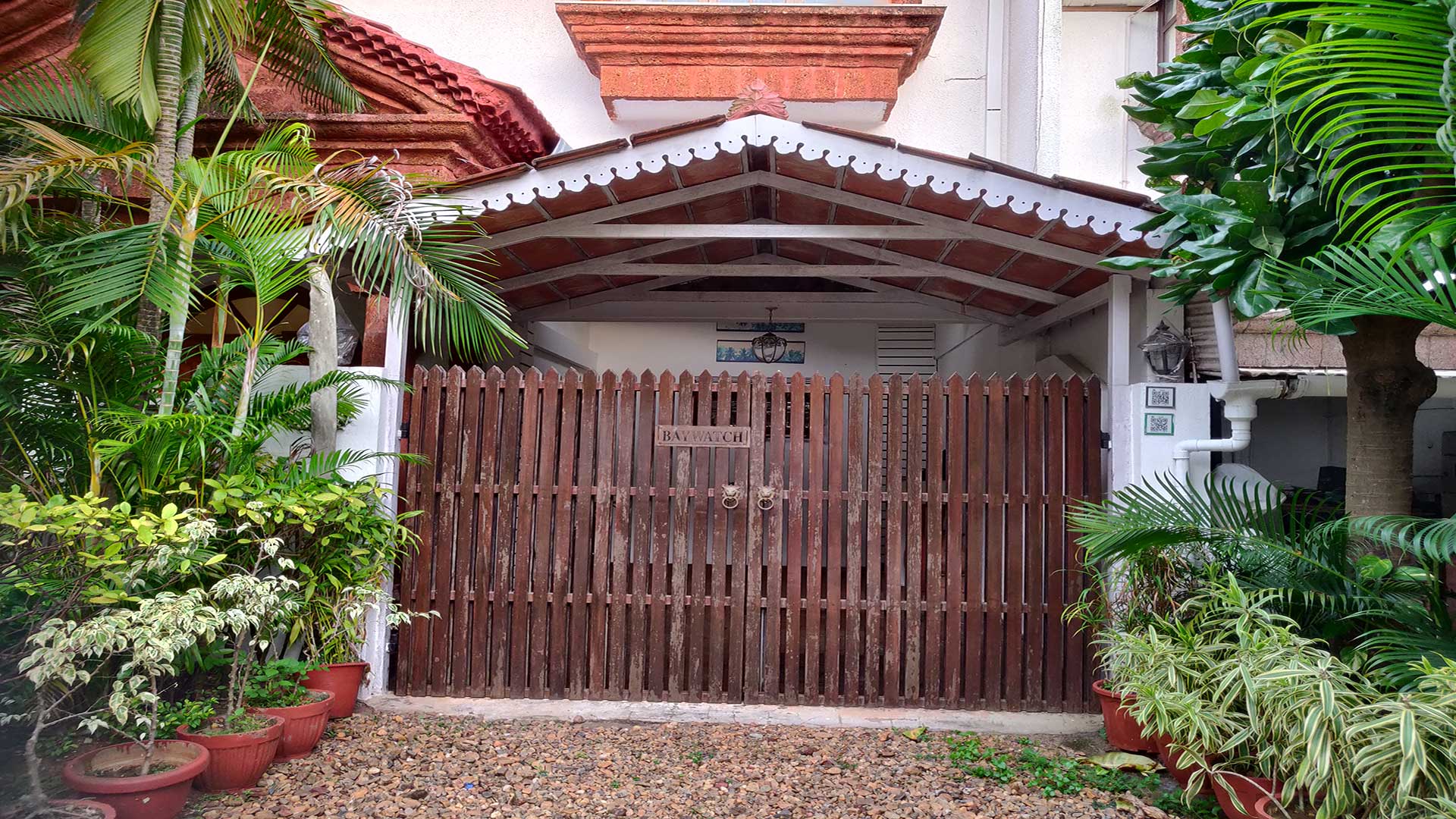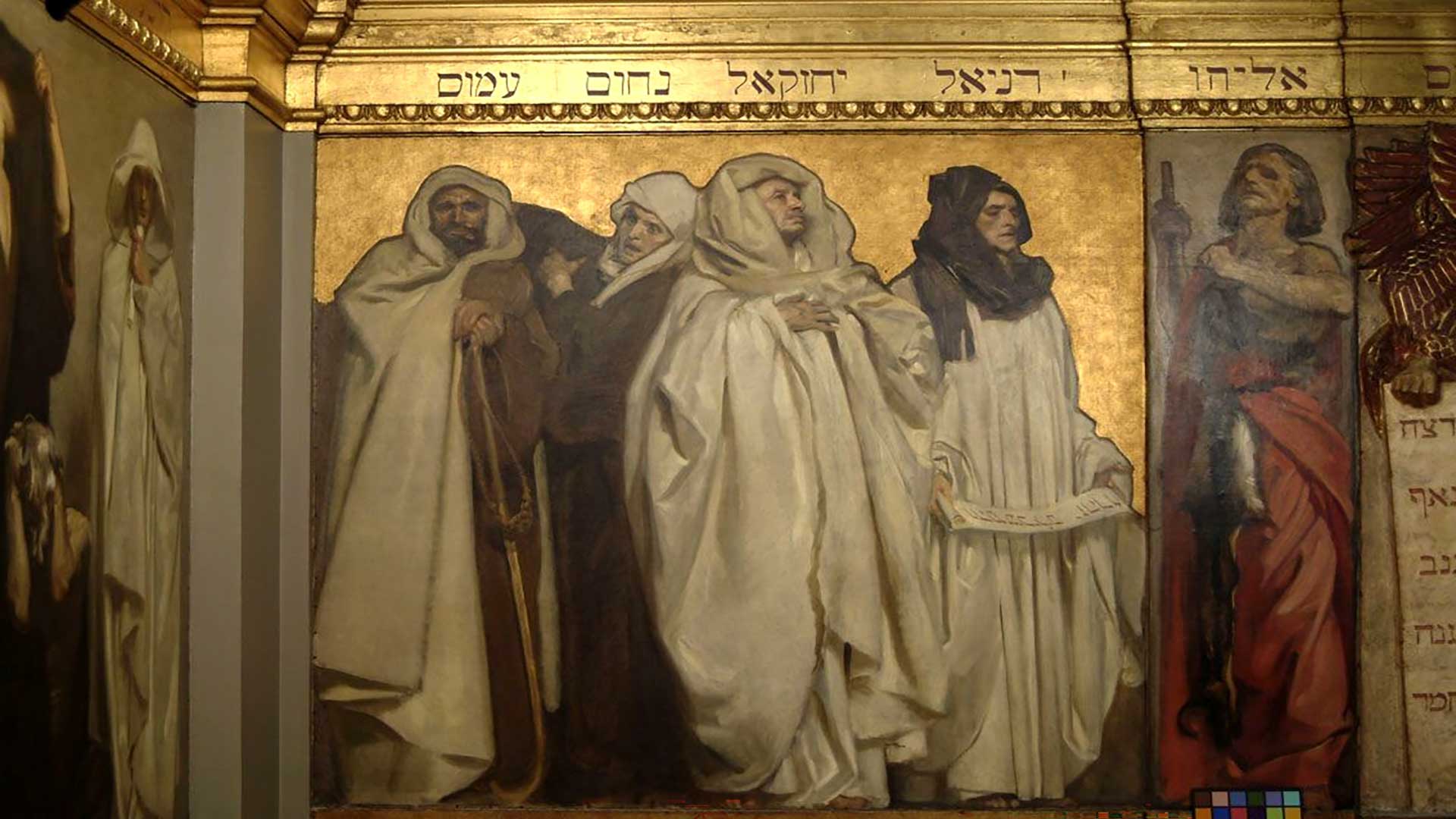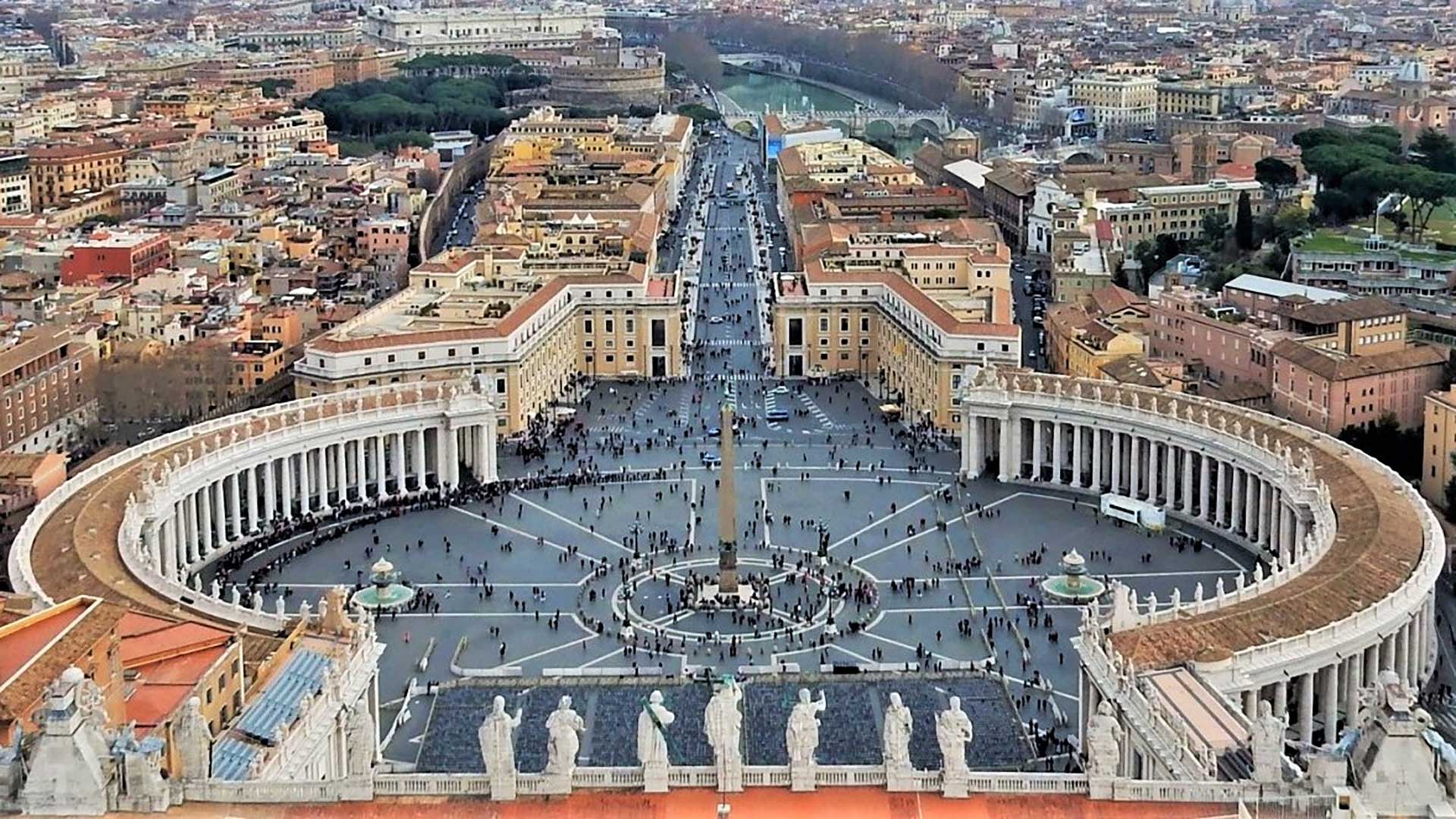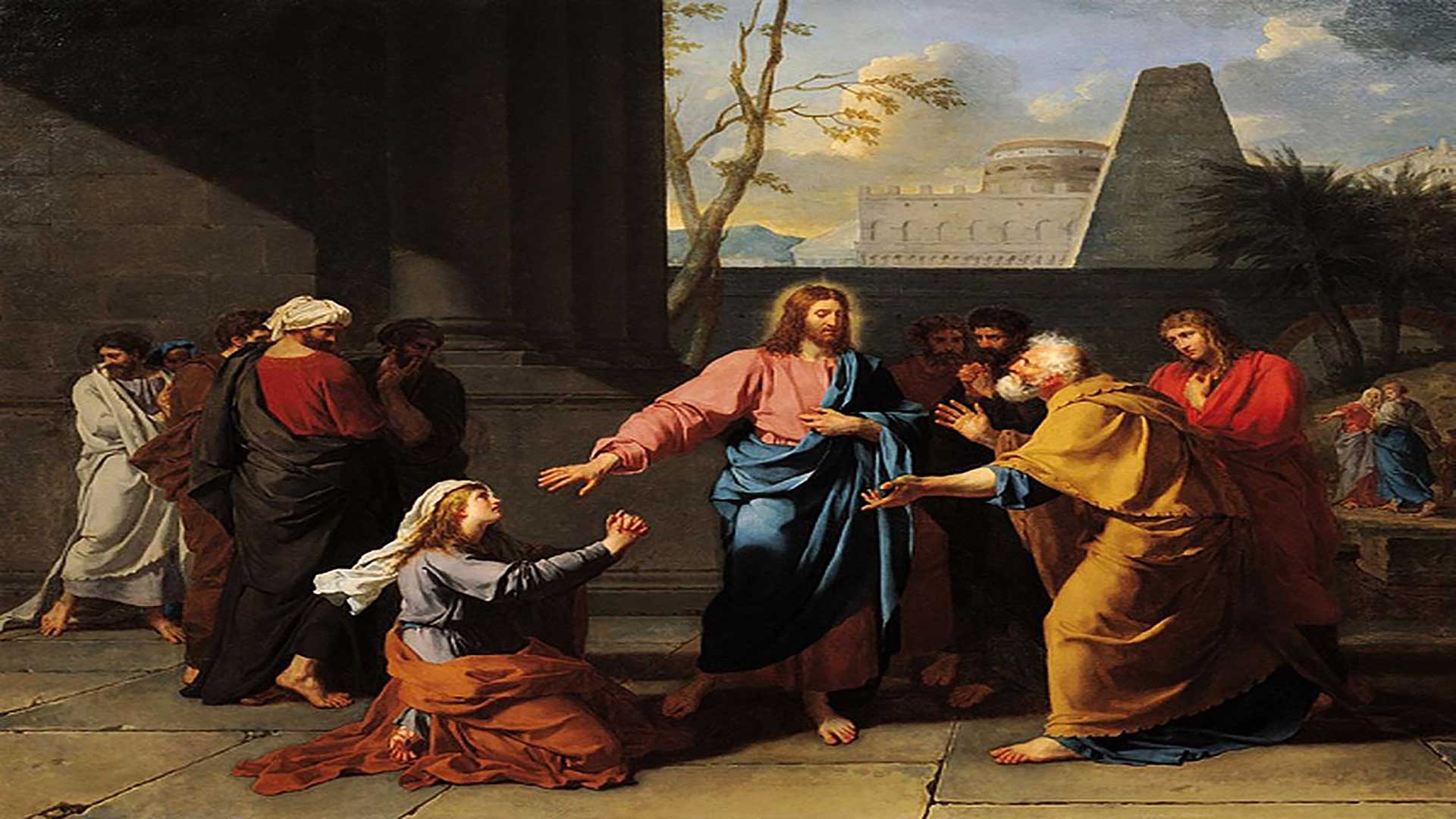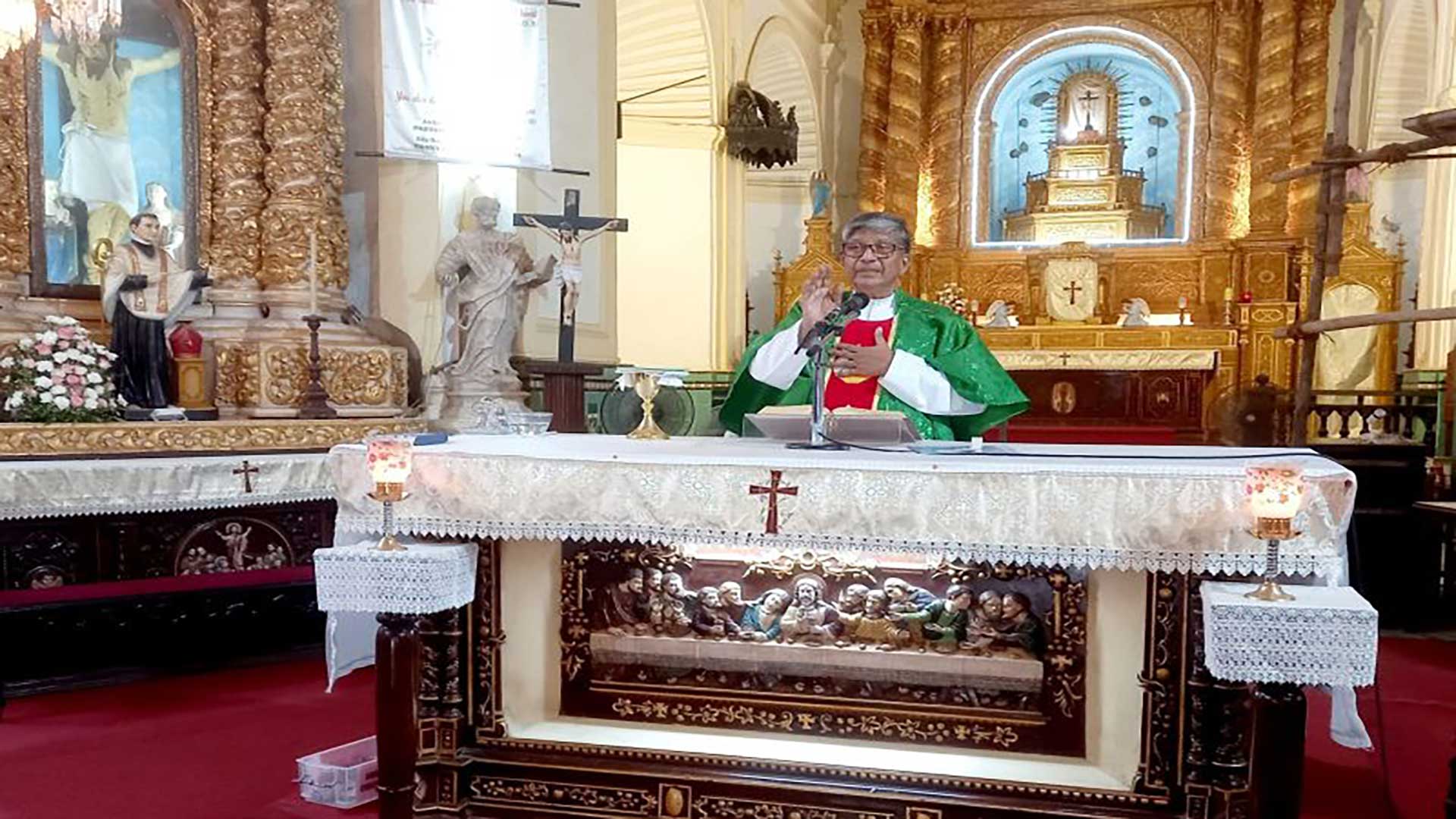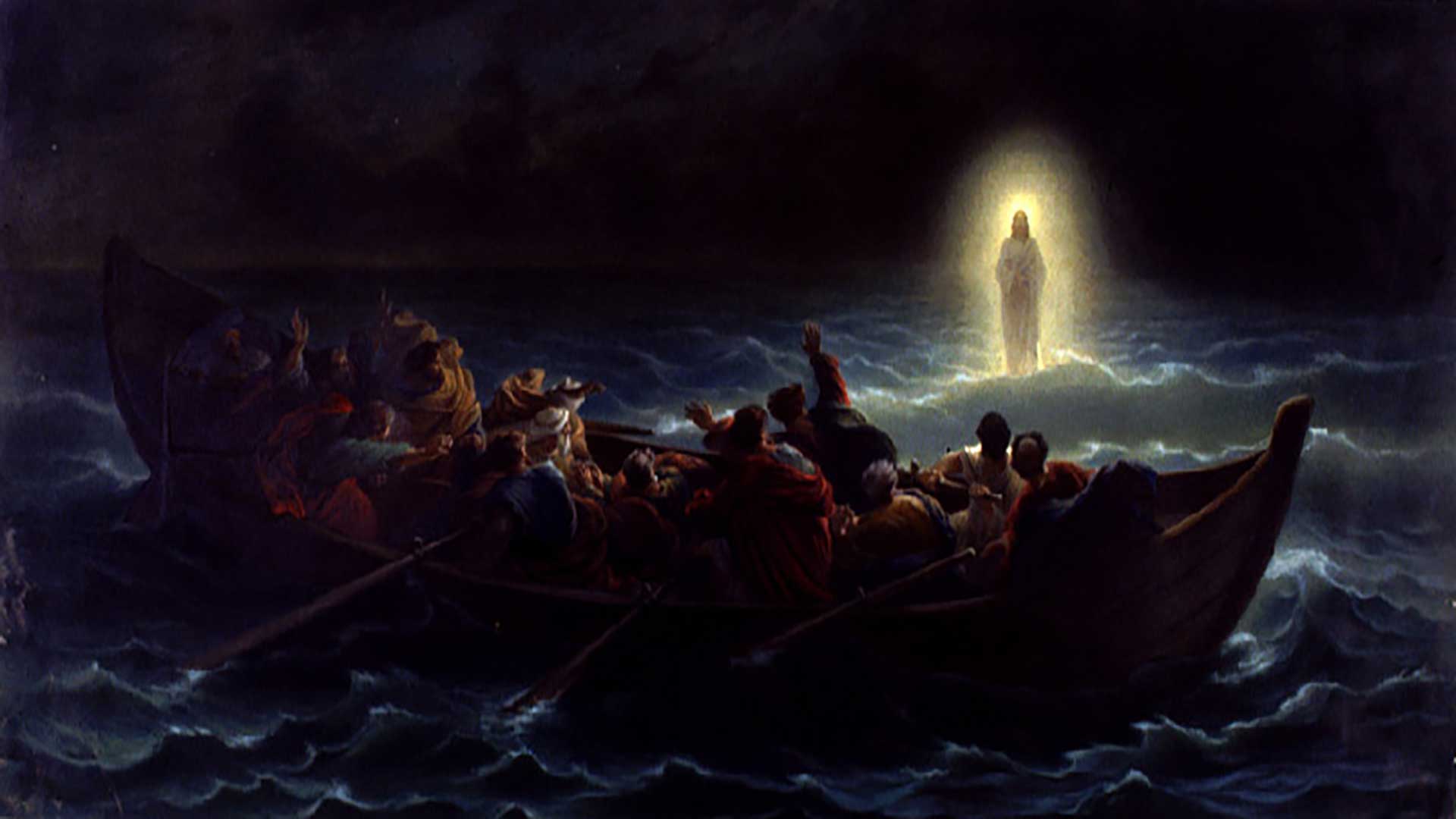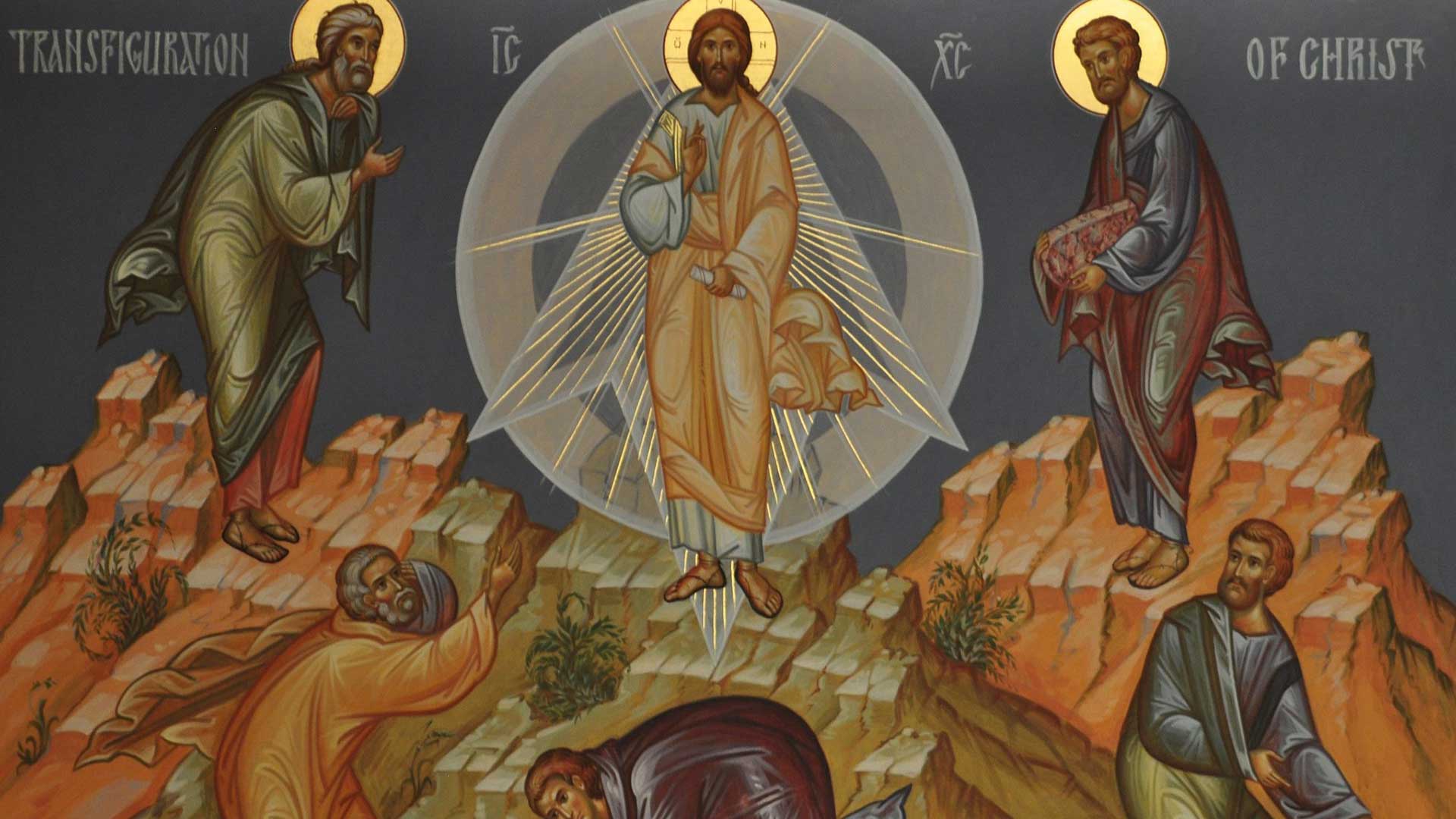The Other Side of Love
September 17, 2023Mass Readings
“Thou shalt love the Lord thy God with all thy heart, and with all thy soul, and with all thy mind” and “Thou shalt love thy neighbour as thyself” are two commandments that God gave Moses for the guidance of the Chosen People. But alas, they carried on, either oblivious of the twin commandments, or practising one to the detriment of the other. Eventually, their hearts were so hardened that lex talionis – an eye for an eye, a tooth for a tooth – became second nature to the Hebrew race.
Yet, today’s First Reading (Sir 27: 30; 28: 7) and Psalm give the lie to our notion of the Old Testament. Sirach calls anger and wrath “abominations” that mark a sinful man, who is therefore cautioned that “he that takes vengeance will suffer vengeance from the Lord.” The antidote is to “forgive your neighbour the wrong he has done, and then your sins will be pardoned when you pray.” In fact, last Sunday’s Gospel text stressed that there is no use seeking the Lord’s pardon if we haven’t reconciled with our brother. A sure way out of our predicament is “to remember the end of your life… remember destruction and death, and be true to the commandments.” That is to say, having the Last Things – Death, Judgement, Heaven and Hell – before our eyes improves our spiritual vision![1]
When Peter the Apostle heard Our Lord pronounce the first rules of Christian law, he wished to have them properly spelt out. Hence, the question in today’s Gospel (Mt 18: 21-35): “Lord, how often shall my brother sin against me, and I forgive him? As many as seven times?” The teachers of the law had taught the Jews that to pardon three times was the pinnacle of perfection; but now Jesus seemed to extend love and forgiveness infinitely. “And to make it better understood how rigorously His law of loving kindness must bind our actions, He set before the Apostles’ eyes one of those Oriental courts where the lightest fancy of their monarch can, in an instant, raise up or demolish the most splendid fortunes. So, then, Charity, much more than Justice, should be the foundation of Christian righteousness, or rather one must be blended with the other! ‘Mercy and faithfulness meet in one; justice and peace are united in one embrace!’ even as two sisters,” says the Abbé C. Fouard, in his Jesus Christ the Son of God,[2] a most elevating work.
However, we would do well to not water down Jesus’s commandment of love by applying it indiscriminately. We should not be led to think that to love means to suspend critical judgement about men and matters. Didn’t Our Lord exhort us to be wise as serpents and harmless as doves? Did He not warn his disciples that they would be “like sheep among wolves” (Mt 10: 16)? It behoves us to note therefore that “There’s daggers in men’s smiles”, as we read in Macbeth, and to not be naïve. The world is hostile to God’s Word and they are out to destroy the “One True Church” to which we belong.

“Is it not true that today Our Lord Jesus Christ and His Holy Church are disobeyed, abandoned, betrayed? Is it not true that the laws, institutions, morals, and ways of the people are more and more hostile to Jesus Christ?” – asks Professor Plínio Corrêa de Oliveira in his Way of the Cross.[3] In such a situation, what we need is to be full of righteous anger, not foolish love. “Christ Himself was filled with righteous anger against the vendors who had desecrated the house of God. Such anger is allowable only if it tends to punish those who deserve punishment, according to the measure of their guilt, and with the sincere intention to redress what harm may have been done or to correct the wrongdoer,” explains Fr. John Hardon in his Modern Catholic Dictionary.[4]
Let us therefore not be carried away by this thing called love: righteous anger is permissible and even laudable. When St Paul said, “love bears all things… endures all things” (1 Cor 13: 7) did he mean that we should selfishly, slavishly, shamelessly, accept all things? We cannot love all people or things; we ought to distinguish between true and false loves, between love of self and love of God, between those who love God and hate Him. We may turn a blind eye to those who offend us but we must stand by our God when people offend Him. We need to ask ourselves whether what we are doing is simply because we love to do it, or because it is good, true, right and beautiful. Alas, arguably the most abused word in the dictionary today must be put in place.
Of course, we must always ensure that there is no tinge of hatred and no desire for revenge in what we do; it ought to be our desire only to restore things to their pristine state, and then forgive and possibly even forget. Nor should we live in perpetual doubt and fear. Rather, it is most proper that we entrust ourselves to the Lord our God and do whatever is within our reach – pray as if everything depended on prayer and work as if everything depended on work. In the words of St Paul in today’s Second Reading (Rom 14: 7-9), “none of us lives to himself, and none of dies to himself. If we live, we live to the Lord, and if we die, we died to the Lord.” Then, whether we live or die we should love God and be grateful that we belong to Him.
[1] See my blogpost “The Last Things – First!” https://www.oscardenoronha.com/2019/11/01/the-last-things-first/
[2] Abbé C. Fouard, Jesus Christ the Son of God, Goa: Don Bosco, 1960, p. 270.
[3] Plínio Corrêa de Oliveira, The Way of the Cross https://www.tfp.org/the-way-of-the-cross/
Guardians de Goa
September 14, 2023Goan Culture
Editorial
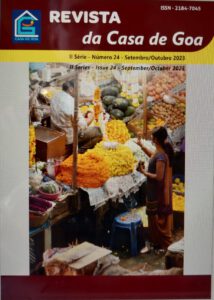
We are holding in our hands an edition tracing the journey of the Konkani and Portuguese languages in Goa; Luso-tropical drama; fiction and travel literature; cuisine; the arts and artists; fragments of our history and culture; and what matters most, reminding us of our duty to be defenders of all that comprises the idea and spirit of Goa.
This issue opens with an essay bearing a poetic title and interesting content: “Portuguese in different sounds”, by our associate editor José Filipe Monteiro. Elsewhere, he reviews O Signo da Ira (The Sign of Wrath), a neorealist novel by Orlando Costa, one of the classics of Indo-Portuguese literature, set in Goa of the nineteen sixties. Costa is also remembered in Júlia Serra’s feature article bearing the title of his play Sem Flores nem Coroas (No Flowers, No Wreathes).
It is well known that Portuguese and Konkani mutually enriched each other in Goa. Less known, however, is the tale of two Indian sisters – Konkani and Marathi – that clashed. A learned Goan resident in Lisbon it was who stopped the conflict dead in its tracks, as associate editor Óscar de Noronha narrates in his essay titled “Dalgado and the Konkani-Marathi controversy”.
We take this opportunity to launch a new section, Document, presenting in English translation the first of the nine articles, under the title “Konkani is not a dialect of Marathi”, published over a century ago in Panjim’s Heraldo, by Monsignor Sebastião Rodolfo Dalgado. There he proved the linguistic and grammatical characteristics of Konkani, and established its identity.
We can feel the sweetness of a language in its popular literature, as illustrated by our Konkani Corner, where you can revisit Konkani sayings translated into Portuguese by the late poet Barreto Miranda. Gastronomy too has the ability to lighten the atmosphere; so, it is no surprise that José Filipe Monteiro has paid tribute to Agnelo Silveira, missing as he does the “man who set up Goan cuisine in Lisbon”.
Ana de Miranda writes about some other aspect of the “mythical, legendary East”. In her very suggestive text, titled “Monsoon Funeral”, she sketches her family history; of how “little by little, slowly and elegantly, the occupant of the house bids goodbye and lets himself dissolve in the rainwater”: a tribute to artist Rishaad de Miranda, son of the great caricaturist Mário, whom we paid homage earlier (Revista da Casa de Goa, No. 12).
“All the world’s a stage, and all the men and women merely players” is a short and sweet Shakespearean line that must have been at the back of Joaquim Correia’s mind when he wrote “Theatre in Goa: tradition and its similarities with Macau and Portugal”: a survey of the traditional Konkani tiatr in Goa, placed parallel to Macanese patois theatre and the Portuguese Teatro de Revista.
And speaking of the Far East, António Aresta travels “From India to Macau”, following the itinerary of the nineteenth-century traveller Pedro Gastão Mesnier, who was also a public works conductor and professor of physics and chemistry in Goa, and later, private secretary to the Governor of Macau, and editor and teacher there.
Such a fascinating life that; or as Amanda D’Costa says in her poem, speaking of another “man with a dream”: “It’s worth it”! The same can be said about the painting by Clarice Vaz, our resident collaborator; a watercolour by Girish Gujar, and photography by Payal Kakkar. Of course, all three refer to Goa, a land that is Susegad (Quiet), as was evident from an exhibition of the same name, comprising painting and associated cultural programme, coordinated by João Coutinho, a member of Casa de Goa. Interestingly, a weekly newsmagazine in video format, produced in Konkani by the Goan diasporic community of Melbourne, is titled similarly: Susegad Danpaar (Quiet Afternoon). These two news items comprise the respective section of our Revista.
Of course, our edition is never complete without reflecting on our culture. Thus, readers will have the opportunity to read the third part of the article co-authored by Philomena and Gilbert Lawrence, on the topic: “Is GEM culture (Goan, East Indian and Mangalorean) a victim of academic baloney?” Very important to enlighten the new generations and make sure that they do not give in to ill-informed clichés about the Indo-Portuguese way of life.
But what was life in Goa really like? In his series on “Fragments of Goan History”, Mário Viegas profiles the Regional Centre of Chinchinim, an association located in that illustrious village of Salcete and active in the last century.
Who can resurrect the ancient guardians of our modus vivendi? In fact, it is more important to find new ones, because without them, Goa will be nothing, and “will end by itself”, going by a rather portentous dictum attributed to St Francis Xavier. And three quarters of a century ago, what were those “Defenders of the Portuguese Flag in Bombay” targeting? They are mysteries that John Menezes unveils in his well-documented article dotted with precious autobiographical snippets.
We are very fortunate to be part of the Revista, which also strives to be a guardian of Indo-Portuguese culture. Hopefully, it will always be welcomed by the powers-that-be and by the world at large.
(Revista da Casa de Goa, Series II, No. 24, September-October 2023)
https://online.fliphtml5.com/bcbho/ovjl/?1694469776240#p=1
Guardiães de Goa
September 12, 2023Goan Culture
Editorial

Temos nas mãos uma edição em que se fala do percurso das línguas concani e portuguesa em Goa; do teatro luso-tropical; da literatura de ficção e de viagens; da culinária; das artes e dos artistas; de fragmentos da nossa história e cultura; e, o que importa mais, lembra-nos do dever de sermos defensores de tudo o que compreende o conceito e espírito de Goa.
O número abre com um ensaio de título poético e conteúdo interessante: “Português em vários sons”, da autoria do nosso editor associado José Filipe Monteiro, que, mais além, faz uma recensão crítica a O Signo da Ira, romance neorrealista de Orlando Costa, um dos clássicos da literatura indo-portuguesa, da Goa dos anos sessenta do século transacto, autor ora duplamente lembrado nesta edição, com a crónica de Júlia Serra, sobre a peça teatral intitulada Sem Flores nem Coroas.
É sobejamente conhecido que em Goa o português e o concani mutuamente se enriqueceram. Menos conhecido, porém, é a história de duas irmãs indianas – o concani e o marata – que se entrechocaram. Foi um sábio goês residente em Lisboa que travou o conflito, e dele nos fala o editor associado Óscar de Noronha, no ensaio intitulado “Dalgado e a controvérsia concani-marata”.
Aproveitamos o ensejo para inaugurar uma nova secção, Documento, apresentando em tradução inglesa o primeiro dos nove artigos, sob o título de “O concani não é dialecto do marata”, há mais de um século publicados no Heraldo, de Pangim, por monsenhor Sebastião Rodolfo Dalgado que neles firmara as características linguísticas e gramaticais do concani, estabelecendo assim a sua identidade.
A doçura de uma língua sentimo-la na sua literatura popular, como bem ilustra o Cantinho do Concani, onde se tem revisitado adágios concanis traduzidos em português pelo finado poeta Barreto Miranda. Também a gastronomia tem o condão de amenizar o ambiente. Por isso, não admira que José Filipe Monteiro tenha rendido preito a Agnelo Silveira, pelas saudades do “homem que domiciliou a culinária goesa em Lisboa”.
De uma outra vertente do “Oriente mítico, lendário” escreve Ana de Miranda. No seu texto muito sugestivo, intitulado “Monsoon Funeral”, delineia uma nota sobre a história familiar; de como “aos poucos, devagar, com elegância, o habitante da casa despede-se e deixa-se dissolver na água de chuva”: tributo ao artista Rishaad de Miranda, filho do grande caricaturista Mário, que antes foi alvo de nossa homenagem (Revista da Casa de Goa, No. 12).
“O mundo é um palco e todos os homens e mulheres são somente actores”, é uma frase lapidar shakespeariana, que terá estado no fundo da mente de Joaquim Correia ao escrever “O Teatro em Goa: tradição e suas similitudes com Macau e Portugal”: um levantamento sobre o tradicional tiatr em concani de Goa, posto em paralelo com o teatro macaense em Patuá e o Teatro de Revista em Portugal.
E falando do Extremo-Oriente, António Aresta viaja “Da Índia para Macau”, seguindo o itinerário do aventureiro novecentista Pedro Gastão Mesnier, que foi também condutor das obras públicas e professor de física e química em Goa, e mais tarde, secretário particular do Governador de Macau, e aí ainda redactor e professor.
Uma vida fascinante essa; ou como diz Amanda D’Costa no seu poema, falando de um outro “homem com um sonho”: “Vale a pena”! Diga-se o mesmo da pintura de Clarice Vaz, nossa colaboradora residente; da aguarela de Girish Gujar, e da fotografia da autoria de Payal Kakkar. Claro que os três se referem a Goa, esse torrão que é Susegad (sossegado), como ficou patente numa exposição homónima, de pintura e programa cultural associado, da responsabilidade de João Coutinho, sócio da Casa de Goa. Curiosamente, também um semanário noticioso em formato vídeo, produzido em concani pela comunidade diaspórica goesa de Melbourne assim se intitula: Susegad Danpaar (Tarde Sossegada). São duas notícias que preenchem a respectiva secção da nossa Revista.
É claro que nunca fechamos a edição sem ponderarmos sobre a nossa cultura. Assim, os leitores terão o ensejo de ler a terceira parte do artigo da co-autoria de Philomena e Gilbert Lawrence, sobre o tema: “Será a cultura GEM (goesa, indiana oriental e mangaloriana) vítima de equívoco?” Muito importante para o esclarecimento das novas gerações, e para que elas se desistam dos clichés mal informados sobre o modo de ser indo-português.
Mas como era na realidade a vida em Goa? Na sua série sobre “Fragmentos da História de Goa”, Mário Viegas traça o perfil do Centro Regional de Chinchinim, que no século transacto fora uma agremiação activa sita nessa ilustre aldeia de Salcete.
Quem poderá ressuscitar os antigos guardiães do nosso modus vivendi? Aliás, o mais importante é achar novos, pois sem eles Goa nada será, e “por si acabará”, na frase algo apocalíptica atribuída a S. Francisco Xavier. E, há três quartos do século, que visavam os “Defensores da bandeira portuguesa em Bombaim”? São mistérios que nos desvenda John Menezes, no seu artigo bem documentado e com preciosos traços autobiográficos.
Temos a boa sorte de fazer parte desta Revista, que se esforça a ser também guardiã da cultura indo-portuguesa. Oxalá sempre seja bem compreendida pelos que detêm o poder e pelo povo em geral.
(Revista da Casa de Goa, Serie II, No. 24, Setembro-Outubro de 2023)
https://online.fliphtml5.com/bcbho/ovjl/?1694469776240#p=1
Cutting against the grain
September 10, 2023Mass Readings
We are living in difficult times, a far cry from when elders had the authority to correct youngsters. In the past, children weren’t pulled up by their parents alone; just anyone felt empowered to reprimand any erring person. There probably were abuses in this regard, but then, by and large, life was based on well-established rules, customs, traditions. This ensured a system of checks and balances among individuals or groups of people.
To say that it is easier said than done is to adopt the past of least resistance. We fail to notice how, on the other hand, forces of evil have long been proactive in toppling authority and ushering in a reign of unbridled freedom. It is by a “Revolution” such as this, as the Brazilian Catholic thinker Professor Plínio Corrêa de Oliveira prophetically describes in his book Revolution and Counter-Revolution,[1] that we have come to this pass. Relativistic thinking – the belief that there is no absolute truth, right and wrong, true and false, good and bad – has pulled the rug from under our feet.
Against this background, are we in a position to “warn the wicked to turn from his way” as in the First Reading (Ezek. 33: 7-9) God urges that Prophet of the Spirit of God to do? The wicked would quickly retort: ‘Who are you to admonish me? You may think you are right, but I too am right!’ This is the tenor of the times. Nonetheless, we ought to pay heed to God’s warning that the “wicked man shall die in his iniquity, but his blood I will require at your hand.”
If the wicked do not change their ways, they shall die, whereas we shall have the consolation of having corrected them, and shall be saved. Let us therefore pluck up the courage to do our duty. The open secret is to act with tact and consideration; not out of self-interest, but out of love. It is quite another matter if our love and concern are misconstrued; others will always judge us by their standards, sometimes making grief the price we have to pay for the love we have shared. How many of you can relate to such a situation?
In what way do we express love? St Paul in the Second Reading (Rom 13: 8-10) says: “Owe no one anything, except to love one another… for love is the fulfilling of the law.” But again, what is this love? It is not amorous and sentimental love that is in question here but, rather, the love of God – the first of the Christian virtues which involves following His commandments. Which is where a secular or an atheistic society makes it fundamentally difficult for Christians to have a lucid notion of the divine order of things and follow it. Nowadays, it is more about pleasing ourselves than about pleasing God; and those who stand by Him are considered out of step with the times. A recipe for disorder indeed.
Disorderliness has been part of the human DNA ever since Original Sin; and the situation keeps getting worse every time we offend God. That is why, in a godless world, misunderstanding, anger, resentment, bitterness, hatred, friction and strife are widespread. Note the instances of cold war, not to speak of open criticism, badmouthing and even lawsuits between family members – instead of justice sought through the Church.

As the Gospel (Mt 18: 15-20) recommends, “If your brother sins against you, go and tell him his fault, between you and him alone. If he listens to you, you have gained your brother.” And there is a whole set of steps to be taken to reach the logical conclusion. And what Jesus further tells His disciples is sublime: “Whatever you bind on earth shall be bound in heaven, and whatever you loose on earth shall be loosed in heaven.”
All this calls for effort, dedication and care. Above all, it calls for prayer, for Our Lord has said, “Where two or three are gathered in my name, there am I in the midst of them.” It speaks volumes of the close connect between Heaven and Earth, of us as God’s children who He loves and cares for, and of the free will He has endowed us with. And “if two of you agree on earth about anything they ask, it will be done for them by my Father in Heaven,” is not business management or the product of our efforts, but divine management!
So, how does the life of an honourable person look like in our day and age? According to Professor Oliveira, he or she is often forced to keep “a disheartened silence – a sad condition: ‘Vae Soli’ (‘Woe to him that is alone’).”[2] For its part, society, by either overtly or covertly saying that God is dead, makes the confusion worse confounded. At any rate, while we put our hope and trust in God alone, we ought to persevere on our path of denouncing evil when we encounter it and promoting peace. If the Son of Man Himself was put to death, what more can we say about cutting against the grain?
[1] https://www.pliniocorreadeoliveira.info/UK_RCR.pdf
[2] Ibid., p. 58
God’s Spirit beckons
September 3, 2023Mass Readings
We are spirit and matter, and what really matters is the spirit. This is something the human race has been grappling with since its inception. Jeremiah and Job alike have addressed the issue, but it is only Jesus who provided the right answers, He who is the Way, the Truth and the Life!
The Book of Jeremiah, from which the First Reading (Jer 20: 7-9) is taken, catalogues the Prophet’s woes. It reads like a spiritual diary or confessions spanning the four decades (626 BC to 587 BC) of his prophetic tenure. He tells his countrymen in no uncertain terms that their Babylonic exile is a punishment, a consequence of their unfaithfulness by way of pagan worship.
But alas, none paid heed; they went on with their life, as though Jeremiah were a madman, a mere voice of dissent crying in the wilderness. This only goes to show that a man of God is not without his share of problems; he is at the receiving end of fellow humans and, at times, quite ironically, he feels forsaken even by God. Jeremiah was a man who cried his heart out, and is nicknamed ‘the Weeping Prophet’. For indeed, the greater his obedience to the task entrusted to him by God, the more he suffered.
You and I have also felt the same and in vain have we tried to make sense of it all, haven’t we? Oddly, Peter who had a little earlier recognised Jesus as the Messiah and Son of the Living God, is suddenly repulsed by the idea of His Master’s suffering and death – the first prediction of His Passion – much as you and I are baffled by those twin problems in our day and age. However, trust Jesus Christ to give us the right perspective. In today’s Gospel text (Mt 16: 21-27), He says: “If any man would come after me, let him deny himself and take up his cross and follow me. For whoever would save his life will lose it, and whoever loses his life for my sake will find it.” (24-25)
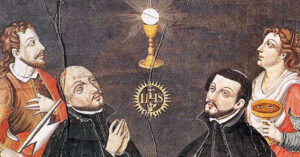
If back in Jesus’ time, his disciples stood bewildered, do you think that exhortation would go well with the materialistic world we live in today? Following Jesus is therefore no easy task – but, then, who on earth can give us a better way? It simply means we should be walking the proverbial narrow path – which is the only sure one after all! And to highlight his admonition, Jesus dismissed Peter as being a ‘tempter’, like Satan, a stumbling block on His path to the redeeming Cross. All that Peter should have done was faithfully followed the Master's directives; and we too should, for the stakes are high, as famously expressed by Jesus: “For what does it profit a man if he gains the whole world and forfeits his soul?”
So, it’s clearly a choice between this life and the next, between temporary successes and eternal loss. Centuries later, the Divine Master’s life-giving rhetoric is said to have clinched Ignatius of Loyola’s conquest of Francis Xavier’s soul. While at the renowned Sorbonne in Paris, the Basque youth was deeply in love with life and knowledge; he aspired to rise and shine in a boundless world of scientific advances and geographical discoveries. New avenues of learning in the fields of philosophy, poetry, art, political science, and so on, fostered a humanist spirit at the same time as it changed man’s relationship with God.
We who have recently witnessed Chandrayaan and other success stories, are we going to be so completely taken up by earthly promises that we let them eclipse our resurrection story? Let us not give into a romantic idea of life and forget that suffering is for real, for whoever dodges it will regret their folly. As a faithful people of God, let us heed St Paul’s powerful appeal in the Second Reading (Rom 12: 1-2): “to present your bodies as a living sacrifice, holy and acceptable to God, which is your spiritual worship.”
Whereas in Jeremiah’s time, the Jews were plagued by the Babylonians, in Jesus’ time it was the Romans that besieged them. On both occasions it was in retribution for pagan worship. And what of our time? Alas, we have embraced the ways of the world; we are ready to bow or bend over backwards to please earthly masters and idols. We have forgotten and offended God no end. Hence, the urgency of the Pauline call: “Do not be conformed to this world but be transformed by the renewal of your mind, that you may prove what is the will of God, what is good and acceptable and perfect.” That is the Life in the Spirit beckoning us!
Banner: https://rb.gy/v5868
Governed by God
Countries today pride themselves on having governments ‘of the people’, but alas, they can’t hold a candle to what were once upon a time governments ‘by God’! Who can deny that governments inspired by the True God and upheld in Faith can better realise God’s kingdom on earth?
In the First Reading (Is 22: 19-23), look at how Shebna, the royal steward or prime minister in the reign of king Hezekiah of Judah, was ejected from office because of his pride. He was replaced by Eliakim, the son of Hilkiah, an influential Hebrew priest. What better example can there be of political recall?
No doubt, many modern constitutions provide for recall, but very often the process is flawed. On the other hand, Isaiah tells us about how God intervened to provide quality governance for His people. It is a pity that we have lost our connection not only with our political leaders but with God Himself, who is undeniably the author of all that we have and enjoy.
In the Gospel (Mt 16: 13-20), we see how and why Peter was chosen to lead the flock. His name was Simon but Jesus called him Kepha (from the Aramaic, ‘rock or stone’) which in the Greek and Latin tradition translates as Petros/Petrus. He was the first disciple to express faith in Jesus as the Messiah and Son of God: “You are the Christ, the Son of the living God.” This was revealed to him by the Father in Heaven. Hence, although Peter was humanly imperfect and would thrice deny his Master, Jesus drew him into His inner circle.

That is to say, Jesus knew Peter, and vice-versa, and on that Rock He built His Church. That change of name indicates a mission was given to him, as happened to Abraham and Jacob. Come Pentecost, Peter overcame his faint-heartedness and began to preach boldly. He founded and led the churches of Antioch and Rome. And what a leader and first Pope he was – true to his faith and to his people; he did not gaslight the fledgling community but encouraged them, suffered and died for them, crucified upside down, in Rome, under Emperor Nero.
The uniqueness of our Holy Mother Church is that she is made up of sinners who have nonetheless been called to be followers of Christ! Or else, who would qualify? Such magnanimity is humanly incomprehensible; hence, St Paul, in the Second Reading (Rom 11: 33-36) observes: “Oh, the depths of the richness of the wisdom and knowledge of God! How unsearchable are his judgments, and how inscrutable His ways!”
More importantly, the greatest proof of the Church’s divine nature is the many storms she has withstood down the centuries. The same applies to the supremacy of the Petrine office as intended by Jesus. No human institution of that magnitude – if there is any other – would ever survive; but we have the assurance that “the gates of the netherworld shall not prevail against it.” It is a very illuminating and comforting promise; it is also a matter of pride, but can we bask in Her glory and be complacent?
Not at all. No doubt, the Church will not die if we persist in our near-Faustian folly; we will. So, it is up to us to do whatever possible to help our community of faith. With the gathering clouds of suspicion and doubt within the Church (especially with Synodality, which is set to change the order of things), we have to pray for the successors of Peter to be faithful to Scripture and Tradition. And you and I, rather than focus on acquiring wealth, power, influence and success, we ought to see the futility of such aspirations.
Most importantly, Jesus’ forthright question “Who do you say I am?” is a call to get to know Him more closely. Only then we will work wholeheartedly for God’s Kingdom to be realised on earth, acknowledging joyfully: “For from Him, and through Him, and in Him are all things. To Him is glory, for all eternity. Amen.” This will open our minds and hearts to God, will let ourselves be governed by Him and be living signs of the presence of Jesus in the world.
From old Baal to a new Babel?
All three Readings of today challenge us to understand our Faith without beating about the bush; they are as forthright as forthright can be.
The First Reading (Is 56: 1, 6-7) is about being just and righteous if we are to be saved. None will be excluded from God’s salvific plan – neither the eunuchs (traditionally thought to be devoid of God’s favour) nor the foreign nations – provided they honour God’s law in letter and spirit. Israel, chosen to lead the nations to the True God, chose instead, disloyally and ungratefully, to worship Baal and other gods. To them Isaiah made known in no uncertain terms that God would move on and invite peoples of all nations to the holy mountain, making them joyful in His house of prayer. This finally happened when the Good News of Salvation through Jesus Christ was proclaimed to the world by the Apostles.
Meanwhile, it may be noted that a “house of prayer for all peoples” is by no means a free-for-all but rather a house where only the True God reigns; it is surely not an interfaith complex like, say, the Abrahamic Family House comprising a mosque, a church and a synagogue, recently inaugurated in Abu Dhabi, UAE. This attempt to put religions on par is evidently a gross violation of the First Commandment: “Thou shalt have no other gods before me.” And alas, this is only the beginning. Other places of worship are on the horizon, to complete the panorama of a pantheistic philosophy that will serve as a basis of a modern babel of religions.

Today’s Gospel passage (Mt 15: 21-28) provides an eloquent response. It is proof enough of the Divine Master wants his followers to zealously guard the Faith. Why did He give the cold shoulder to the Canaanite woman who had asked Him to exorcise her daughter? By stating that He was sent “only to the lost of the house of Israel” he excluded from His purview the Canaanites who, being idol worshippers, were regarded as enemies of God and a threat to God’s people. Jesus added: “It is not fair to take the children’s bread and throw it to the dogs.” This may sound insulting to modern ears, but Jesus who always called a spade a spade, had no qualms about separating Light from Darkness. Our eternal salvation is at stake if we fail to acknowledge the difference.
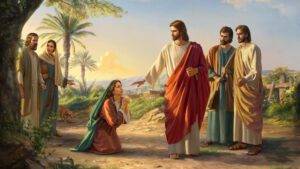
How, then, could a document be signed stating that diversity of religions is willed by God? This easily "relativizes the uniqueness of faith in Jesus Christ,” as Bishop Athanasius Schneider put it. Now, if Jesus discriminated against the Canaanite woman, it was not to demean her but to test her faith. So, when the plucky woman retorted, “Yes, Lord, yet even the dogs eat the crumbs that fall from their master’s table”, Jesus relented and famously said, “O woman, great is your faith! Be it done for you as you desire.” Her daughter was healed instantly.
How often today do we find people of other religions visiting Catholic places of worship! Oh, the faith with which they come and ask for the gift of a child, a job, a spouse, resolution of conflicts, physical healings, peace of mind and heart; they approach Jesus with deep humility and acknowledge His power! And many return to thank Him for favours, graces and blessings received. But alas, you and I who are born Catholics, how often do we take our faith for granted, going on from day to day as though there were nothing marvellous happening in our lives and nothing to be eternally grateful for!
Couldn’t our unfaithfulness alone account for much of the confusion into which the world has plunged?
In the Second Reading, St Paul (Rom. 11:13-15, 29-32) is sorry that his country has been unfaithful, but is also quick to point out that God can write straight with crooked lines – for, after all, “the gifts and the call of God are irrevocable.” There is no doubt that Israel officially rejected the opportunity to proclaim the Good News, but that did not prevent God from reaching out to the rest of the world. And the same mercy that He has shown Israel, He will show the nations.
That is the ultimate miracle we shall witness by our faith and trust in God. Baal and Babel will be no more: His Sacred Heart and the Immaculate Heart of His Mother will triumph, for it is said: “So shall my word be, which shall go forth from my mouth: it shall not return to me empty, but it shall do whatsoever I please, and shall prosper in the things for which I sent it.” (Is. 55: 11)
Goa's only Sunday Mass in Portuguese
Three questions posed by Goa-based journalist Alexandre Moniz Barbosa and my replies (which he translated into Portuguese) as part of his report titled "Uma missa com uma história que mantém viva uma língua", published in Somos! https://somosportugues.com/2023/08/11/uma-missa-com-uma-historia-que-mantem-viva-uma-lingua/
You've been attending the Portuguese mass for years. For some time it was your family that was keeping it going. How was that experience?
I have been attending Sunday Mass in Portuguese since 1970, when the post-Vatican II Ordinário da Missa was published. As we spoke Portuguese at home, attending Mass in the same language was the most natural thing to do. My dear departed father helped out by allotting the Readings and we as a family were an integral part of the choir. In the 1980s, we witnessed traditional hymns slowly giving way to modern tunes (some of them Brazilian). That hymnal, Cantemos Juntos, is still in use.
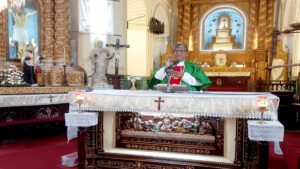
Why do you think having a Portuguese mass in Goa is important?
Churches and chapels in Goa discontinued Mass in Portuguese two decades ago, but the capital city’s main church has held fast to tradition. Successive parish priests have happily obliged even though the number of attendees has dwindled over the years. It is also remarkable that even now there are people who feel comfortable attending Mass in Portuguese. When Goa’s tourist season begins, in October, Portuguese-speaking visitors make it a point to fulfil their Sunday obligation at the church of the Immaculate Conception.
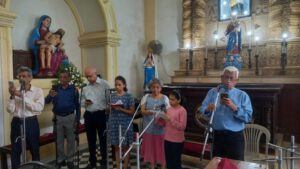
How would you motivate youth to come to this Mass?
This Mass has a niche attendance. The labourers are few, so to say, and practical difficulties many. On the other hand, there are easier options available, in English and Konkani. All that has made it somewhat tough to keep the Mass going. However, of late, thanks to the revival of interest in Portuguese, many youngsters learning the language in schools and colleges are happy to come and even sing in the choir alongside the seniors. Recently, a young visitor from Maharashtra told me that he had felt transported to Portugal!
(Pic credits: AMB)
Faith and Fortitude
Experiencing turbulence in the sea or in the air can be a good test of our faith in God. That is not to say that other forms of turbulence, be they mental, emotional, financial or political, don't measure up. What matters is how quickly we rise and face life with fortitude.
In the First Reading (1 Kings 19: 9, 11-13) of the nineteenth Sunday of Ordinary Time, Elijah finds himself in a predicament. To escape the wrath of the people of Israel, whom he has denounced for worshipping false gods, he has taken refuge in a cave. Elijah awaits God’s intervention on that mountain (Horeb, aka Sinai) where, four centuries earlier, God had revealed Himself to Moses. There comes the hurricane, earthquake and fire, but God was in none of them. Finally, Elijah hears the soft whisper of a voice directing him to replace the kings of Syria and Israel, and to appoint Elisha to succeed him as prophet.
That is to say, the kingdom gloriously inaugurated with David and Solomon is now destined to disappear. Through the unfaithfulness of ungodly people even those who stand by God are destined to witness miserable scenes and suffer ordeals. In our times, don’t we let ourselves be blinded by the city lights and be deafened by a babel of sound? All those signs of pollution ensure that God is shut out from human affairs. No wonder there comes about a spiritual void that disrupts our peace of heart. Here, the solution lies in trusting not the world but God alone and in attuning ourselves to His will, which is discernible through prayerful silence.
The Gospel (Mt 14: 22-33) shows how Jesus entered into communion with the Heavenly Father through prayer. The passage preceding it on the eighteenth Sunday (Mt 14: 13-21, which we missed in view of the Feast of the Transfiguration) dealt with the celebrated multiplication of the loaves and fishes. After letting the crowds disperse, Jesus is known to have gone up to a mountain to pray. A mountain is a symbol of proximity to God and, by separating us from the madding crowd below, lets us appreciate the sweet sound of silence. This is not a form of escapism but the reverent fulfilment of a duty to spend quality time with our Creator.
It was then already “the fourth watch of the night” (between 3 a.m. and 6 a.m.) when Jesus descended to the plains. His fishermen disciples were at work, a few miles offshore. Seeing them tossed about by the waves, He reached out to them. They were afraid at first, superstitiously taking him to be a ghost walking over the waves, but livened up when Jesus announced that it was Him. Impulsively daring, Peter walked on the water with faith; yet, on experiencing the wind’s fury once again, felt insecure. Jesus addressed him in the words He does to us today: “O you of little faith, why did you doubt?”
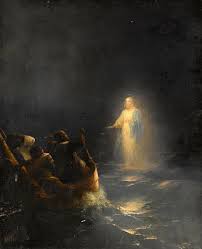
In Abbé C. Fouard’s view, “The effect which this sudden stilling of the tempest had upon the disciples’ minds was altogether different from the enthusiasm caused by the multiplying of the loaves. ‘They had not grasped the lesson of the loaves,’ says St Mark, mournfully, ‘so dulled were their hearts.’ Too dull and too sordid of soul to conceive of any spiritual kingdom as yet (…) When they saw that He meant to refuse the sceptre now offered Him, they were so sore at heart and so dissatisfied that they quite forgot the almighty attributes of their Lord, and dared to resist His commands. It required a night of anguish and terror, like this through which they had passed, to bring them to a knowledge of their fault. But this trial tore the veil from their eyes; as they beheld Jesus bidding the roaring floods be still, and holding the powers of nature beneath His feet, they recognized ‘He it was, that spread out heaven to be his covering, made ocean a floor under his feet’ [Psalm 104: 2]. Throwing themselves on their faces before Him, they worshipped and adored Him, saying: ‘Thou art indeed the Son of God.’”[1]
Today, you and I toss hard in the bark of Peter that is the Catholic Church. In the course of her long history, we have, as a matter of course, witnessed very marvellous things, and at other times, the most appalling and distressful things as well. Let us not overthink and overreact, nor ever lose hope. Let us collect our thoughts, reaffirm our resolve, act with determination, and above all, hope and pray that Peter and his disciples will not let the bark sink....
Finally, let us behold the example of St Paul who trusted in the Lord through thick and thin. In today’s Second Reading (Rom 9: 1-5), he is ready to do anything for the salvation of the Jews, even to the point of excluding himself from God’s favour! So, did God fail, or at least fail him? How to account for the so-called Chosen Race’s lukewarm response to Jesus? The genial Apostle answers this question in three parts, in the present chapter (9) and in the two that follow (10, 11), throughout endorsing God’s ways and praising His unstinted fidelity to His promises. As the Psalm (84: 13-14) says, let us firmly believe that
The Lord will make us prosper
and our earth shall yield its fruit,
Justice shall march before him
and peace shall follow his steps.
Banner: https://rb.gy/judir
[1] Abbé C. Fouard, Jesus Christ the Son of God. Goa: Don Bosco, 1960, p. 235.
Transfiguration: wowed by God
It may come as a surprise to many that the eighteenth Sunday of the present Yearly Cycle is dedicated to that most celebrated event known as the “Transfiguration of Jesus”, which is described by Evangelists SS Matthew, Mark and Luke, and referred to warmly by St Peter in his Second Epistle. It is a fixed feast, that is to say, an annual celebration that is held on the same calendar date every year, 6 August, whose historical explanation is sometimes lost on us.[1] It is thus one those feasts in Ordinary Time that takes precedence over the Sunday liturgy. The momentous episode is also remembered some time in Lent. It contrasts so strikingly with that sombre liturgical season that it gives us a WOW experience, as I distinctly remember having had when I first heard the respective Reading as a child.
The Transfiguration refers to the moment when Jesus became radiant in glory on what is traditionally believed to have been Mount Tabor. The incident prefigured in the Book of Daniel, an excerpt of which makes up today’s First Reading (7: 9-10, 13-14). The Prophet saw “one like a son of man coming, and he came to the Ancient of Days [Eternal God] and was presented before him. And to him was given dominion and glory and kingdom, that all peoples, nations, and languages should serve him; his dominion is an everlasting dominion which shall not pass away, and his kingdom one that shall not be destroyed.”
Who could fail to see here a foreshadowing of Our Lord Jesus Christ? According to the Gospel of St Matthew (17: 1-9), Jesus’ face shone like the sun and his clothes became white as light. There appeared two Old Testament figures, Moses and Elijah, with whom Jesus conversed very freely. All of this the apostles Peter, James and John were privileged to witness, thanks to a special bond they enjoyed with their Master. To them alone was revealed here the mystery of Jesus’ fully human and fully divine nature.
On the other hand, the fully human nature of the apostles let them see but not fully realise the depth of this mystery. They seemed eminently qualified to go out and sing of the Lord’s wonders from the rooftops, but alas, Peter made an infantile suggestion instead: “Lord, it is well that we are here; if you wish, I will make three booths here, one for you and one for Moses and one for Elijah.” Isn’t this how we too react to supernatural events: by reducing them to mundane standards?
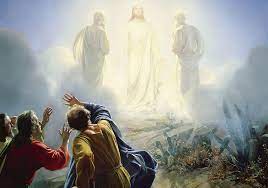
Of course, none of what Peter had envisaged actually happened. Rather, a bright cloud covered them, and that rare voice of the Father in Heaven endorsed Jesus’ identity as God’s Son, just as He had done at His Baptism in the Jordan. Jesus instructed them not to tell anyone about the mountain experience until He rose from the dead. Meanwhile, the experience must have strengthened the faith of the apostolic trio. Not only did they become excellent witnesses to the Faith; Peter and James became martyrs, and John, the only apostle to die a natural death, went on to write the Book of Revelation.
The Transfiguration is easily a highpoint in the Christian journey of faith. It is a revelation of time past, present and future. Here, Moses represented the Law that had been given to the people of Israel on Mount Sinai, while Elijah symbolised the great prophetic tradition. To Jesus’ contemporaries, there ought to have been no doubt that His earthly ministry was intimately connected to His glorious divine origin. Finally, all of what had happened pointed to a future that we as believers eagerly look forward to.
Nothing better than the convincing voice of St Peter (2 Pet 1: 16-19) that sets all doubts at rest. The eyewitness that he was says: “We did not follow cleverly devised myths when we made known to you the power and coming of our Lord Jesus Christ, but we were eyewitnesses of His majesty.” He calls upon all generations to pay attention to “the prophetic word made more sure. You will do well to pay attention to this as to a lamp shining in a dark place, until the day dawns and the morning star rises in your hearts.”
However, do we ever think of it all? Our days stretch out in an endless vista as we go about our petty tasks hardly aware of our listless attitude toward supernatural life. Are we wowed by the remarkable foreshadowing of the Beatific Vision? In the light of what has transpired in our State of late, ironically on Pastor’s Day, there is much to be concerned about our individual and communitarian living. Let us ardently pray that our Pastors shepherd their flocks wisely, and not stray into unknown pastures; that they who are moulded unto the heart of Christ set their hearts on heavenly things and are wary of the ways of the world; that, rightly priding themselves on being the Alter Christus, they may feed the flock with the Living Bread, putting the spotlight on God’s Word rather than on their own.
Finally, let us pray for a Transfigured world: that you and I may come to know intimately the True God who never fails to wow us.
Banner: https://rb.gy/rutwu
[1] On the history of its institution, see https://www.newadvent.org/cathen/15019b.htm
